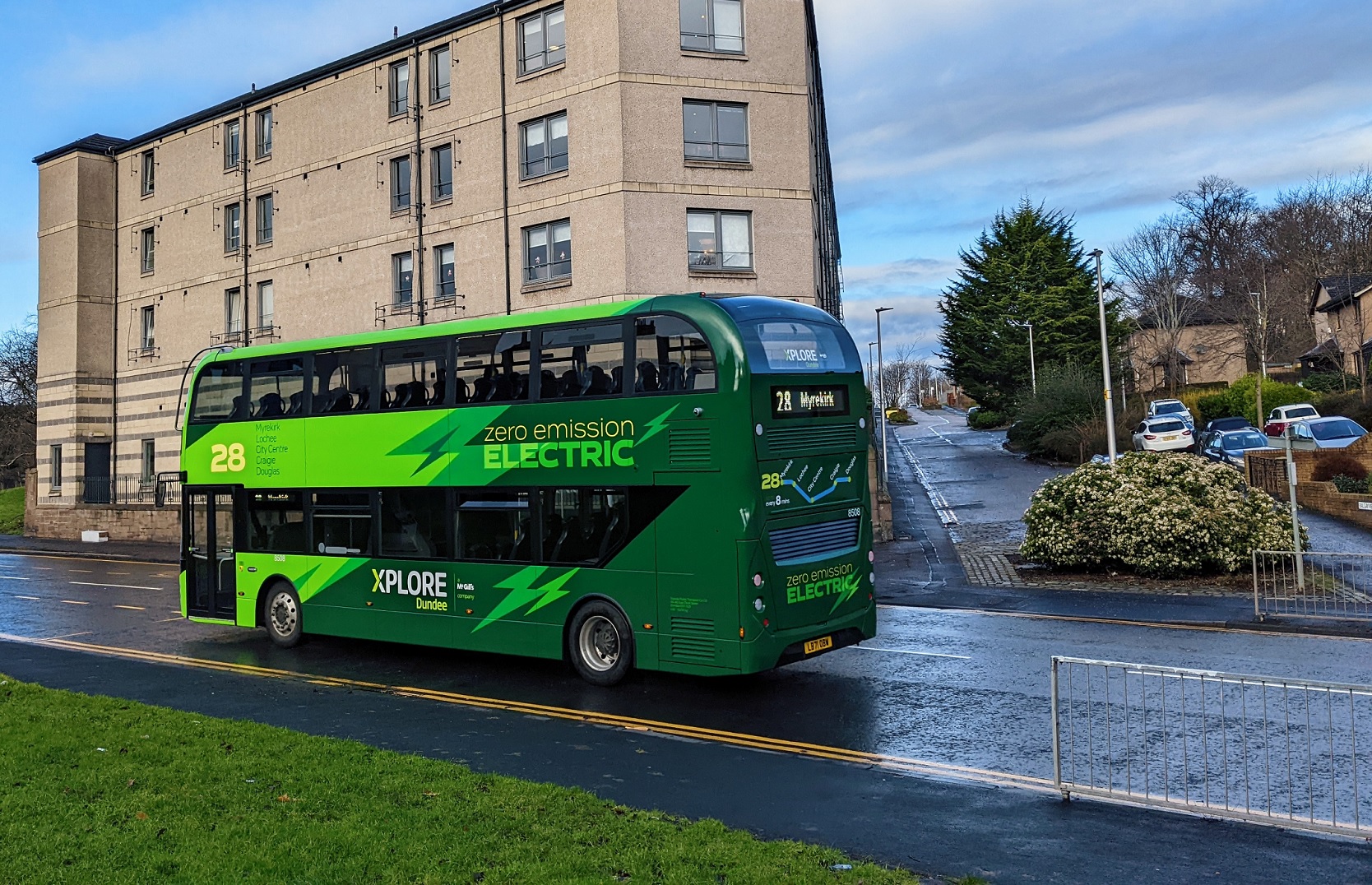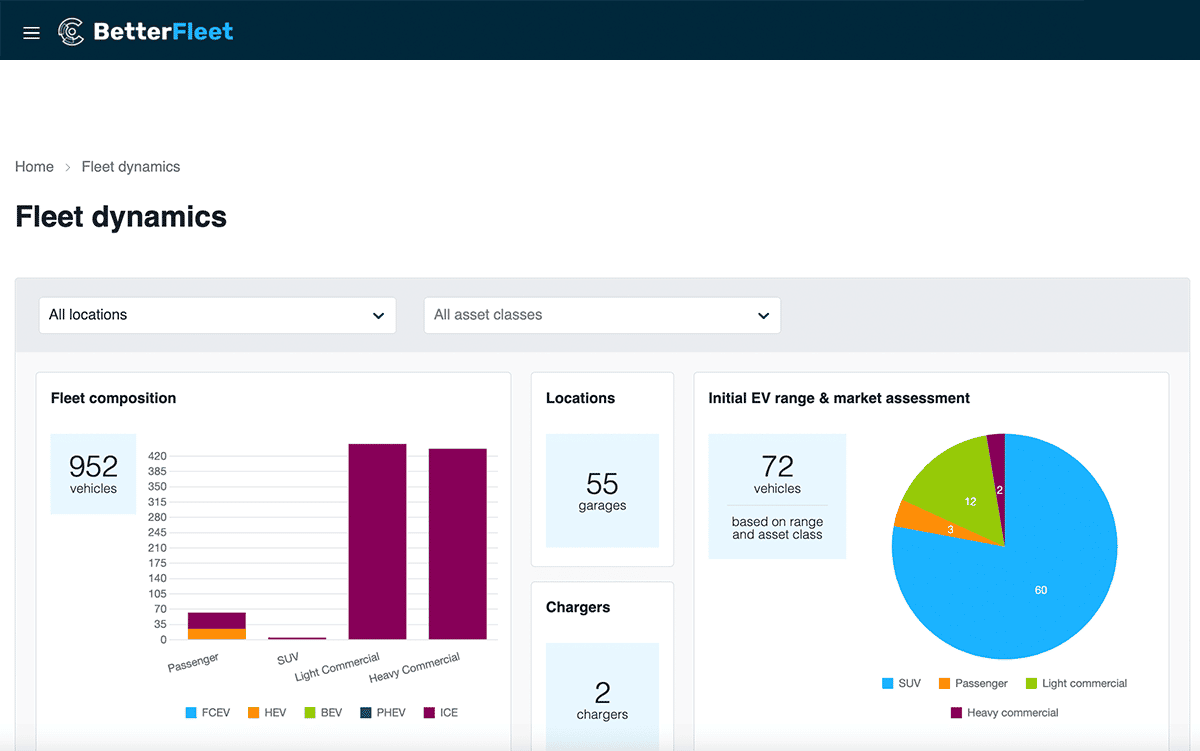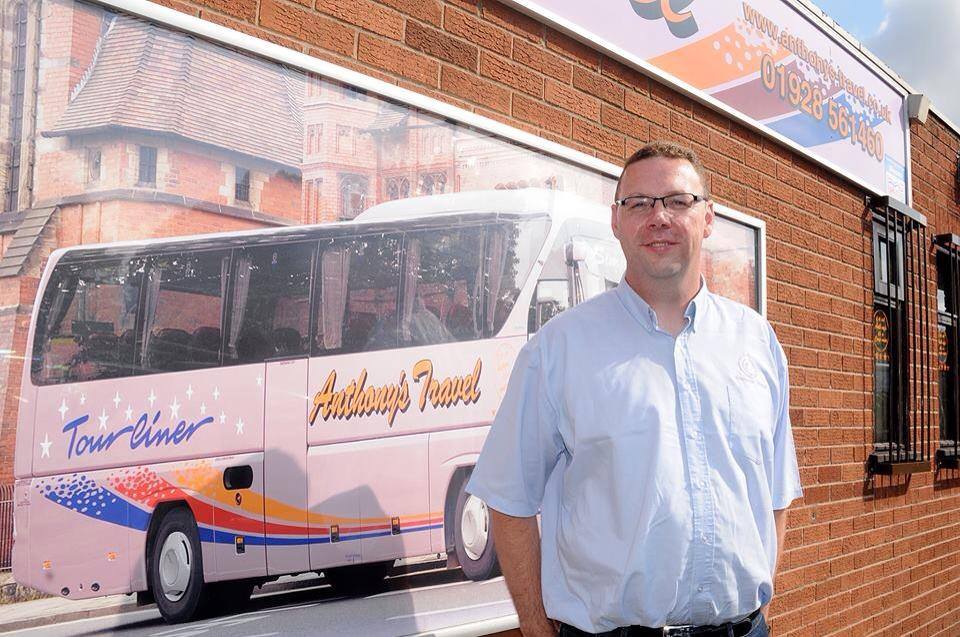A decarbonisation target set by the Scottish Government that involves removal of “the majority” of the country’s diesel bus fleet in favour of zero-emission models by the end of 2023 is highly unlikely to be achieved, a report published recently by sustainable transport alliance Transform Scotland has claimed.
Instead, Stuck in Traffic presents the scenario that only 16% of the country’s bus fleet – less than one-third of the way to the target – will have been converted to zero-emission by that time. That represents a little over 600 of the country’s approximately 3,700 buses.
Bus decarbonisation progress among other areas of criticism
Decarbonisation of the bus fleet in Scotland is one of several Scottish Government workstreams relating to the industry that are subject to criticism in the report. It also highlights problems with the rollout of free bus travel for under-22s and slow progress in allocation of money from the £500m Bus Partnership Fund for priority measures.
Transform Scotland’s report reviews various transport-related plans publicised by the Scottish Government in annual Programme for Government (PfG) documents. The target to remove more than half of Scotland’s diesel buses by the end of 2023 was listed in the 2021-22 PfG, published in September 2021, as part of a “green transport revolution.”
“With only approximately 16 months left to remove the majority of diesel buses from public service, it is unlikely that this target will be reached,” Stuck in Traffic states. Such a likely failure “is not particularly surprising” given that the aim “was very ambitious,” the report continues.
Transform Scotland adds it has been told by Transport Scotland that no information is held on the make-up of the Scottish bus fleet, something that the campaign group has described as “rather unexpected.”
Scotland bus decarbonisation target ‘could have been achieved’
The 2023 target to pass the halfway point on diesel bus removal in Scotland had long been regarded as highly optimistic, although one senior figure in the Scottish bus industry had suggested that it was achievable subject to sufficient third-party money being put forward to support the necessary procurement of zero-emission vehicles.
The first phase of the Scottish Zero Emission Bus (ScotZEB1) challenge fund delivered £62m towards 276 battery-electric buses and accompanying infrastructure. When infrastructure is excluded from calculations, that translates to an average subsidy per vehicle of £176,000, down significantly from the per-bus figures of the earlier Scottish Ultra Low Emission Bus Scheme (SULEBS).
A second round of ScotZEB, worth a maximum of £58m, will open early in 2023, with coaches among vehicles other than buses that are planned to fall within scope. The Scottish Government continues to push hard for what it terms “innovative” bids regarding financing arrangements to reduce the level of subsidy required, an aspiration it first aired in the 2019-20 PfG.
However, papers published by the Bus Decarbonisation Taskforce in March note that a reduction in per-vehicle subsidy from SULEBS to ScotZEB1 likely came “as a result of negotiation between operators and manufacturers, with no evidence within the [ScotZEB1] bids of the finance sector bringing forward innovative financial products.”
Bus priority measures rollout too slow, report notes
In relation to free bus travel in Scotland for under-22s, Stuck in Traffic acknowledges that the Scottish Government delivered what it promised by launching the scheme on 31 January. However, it notes that there have been “sustained problems with the application process,” which is described as “unnecessarily complex and prevents many young people from taking advantage.”
On the Bus Partnership Fund, which dates to the 2019-20 PfG, the report observes that little over 5% of the £500m available has been allocated thus far. It adds that except for some ‘quick wins’, the funding “has only been used for developing appraisals and business cases, with no money allocated yet for substantive infrastructure.”
Bus priority measures “should be treated with more urgency,” the report adds. It is also highly critical of a lack of progress with the delivery of priority on motorways in the Glasgow region. Stagecoach Bluebird Managing Director Peter Knight said in April that money towards zero-emission buses “needs to be matched” by priority measures and better road infrastructure if those vehicles’ impact is to be maximised.
Download Stuck in Traffic here.



























